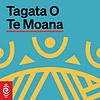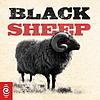
Our Changing World by RNZ
RNZ
Radio: Radio New Zealand National
Categories: Science & Medicine
Add to My List
Listen to the last episode:
Kate Evans visits a passionate team as they carpet a remote volcanic island in Tonga with poisoned bait, hoping to eradicate rats. What does it take to complete this kind of project, what are the chances of success, and what will it mean for the island’s ecosystems if they manage to remove the rats once and for all?
Previous episodes
-
1869 - Turning the tide – what it takes to take out ratsThu, 25 Apr 2024
-
1868 - Summer 34 – Three decades of albatross researchThu, 18 Apr 2024
-
1867 - Taking on water - marine protection in AotearoaThu, 11 Apr 2024
-
1866 - A tale of two islands – erect-crested penguinsThu, 04 Apr 2024
-
1865 - The mystery of how godwits sleep in flightThu, 28 Mar 2024
-
1864 - Lithium - a mood enhancing elementMon, 15 Jul 2019
-
1863 - Lead - sweet-tasting but deadlyFri, 12 Jul 2019
-
1862 - Lanthanum - curious case of a 'lost' elementMon, 08 Jul 2019
-
1861 - Krypton - its name means 'hidden' but it's a real thingFri, 05 Jul 2019
-
1860 - Iron - creator of the modern worldMon, 01 Jul 2019
-
1859 - Iridium and the end of the dinosaursFri, 28 Jun 2019
-
1858 - The stuff of life - Carbon capture in our ocean ecosystemsThu, 21 Mar 2024
-
1857 - Fish out of water - How to grow fish on landThu, 14 Mar 2024
-
1856 - Kina-nomics - The kina are taking over, what can we do?Thu, 07 Mar 2024
-
1855 - The undersea orchestra - Ocean sounds and what they tell usThu, 29 Feb 2024
-
1854 - Watching the weather in the far southern seasThu, 22 Feb 2024
-
1853 - New Zealand’s Antipodes Islands – remote, wild, and specialThu, 15 Feb 2024
-
1852 - Pollen, asthma and allergiesThu, 01 Feb 2024
-
1851 - Restoring Wellington’s seaweed forestsThu, 25 Jan 2024
-
1850 - Summer science: AI and medicinal cannabisThu, 18 Jan 2024
-
1849 - Summer science: Hybrid wildlife and mātauranga MāoriThu, 11 Jan 2024
-
1848 - Summer science: Seabirds in AucklandThu, 04 Jan 2024
-
1847 - Summer science: Kākā in WellingtonThu, 04 Jan 2024
-
1846 - Summer science: Death rays and radio inventionsThu, 28 Dec 2023
-
1845 - The giant dinosaurs of Patagonia… and maybe Aotearoa?Thu, 21 Dec 2023
-
1844 - Underwater slips and slidesThu, 14 Dec 2023
-
1843 - On alert – the National Geohazard Monitoring CentreThu, 07 Dec 2023
-
1842 - Monitoring the Makarora mohuaThu, 30 Nov 2023
-
1841 - A new way to help honey beesThu, 23 Nov 2023
-
1840 - OCW recommends: The Turning PointMon, 20 Nov 2023
-
1839 - Plasma rockets in spaceThu, 16 Nov 2023
-
1838 - Helping to revitalise Moriori cultureThu, 09 Nov 2023
-
1837 - Forecasting in changing timesThu, 02 Nov 2023
-
1836 - The potential of planktonThu, 26 Oct 2023
-
1835 - Life in the fast and slow lanes of braided riversThu, 19 Oct 2023
-
1834 - Why are penguins so cool?Thu, 12 Oct 2023
-
1833 - Muscles young and oldThu, 05 Oct 2023
-
1832 - Dotterels: The Southland underdogThu, 28 Sep 2023
-
1831 - The recipe for food pairingThu, 21 Sep 2023
-
1830 - The Great Ireland vs New Zealand Bird-off: Part 2Thu, 14 Sep 2023
-
1829 - The great Ireland vs. New Zealand bird-off: Part 1Thu, 07 Sep 2023
-
1828 - Retraining the tinnitus brainThu, 31 Aug 2023
-
1827 - Exercise on the brainThu, 24 Aug 2023
-
1826 - Earthquake engineering meets breast cancer screeningThu, 17 Aug 2023
-
1825 - Takahē dreamersThu, 10 Aug 2023
-
1824 - The petrel patrolThu, 03 Aug 2023
-
1823 - The science of snowThu, 27 Jul 2023
-
1822 - Inside the nuclear fusion reactor ITERThu, 20 Jul 2023
-
1821 - Our taiao, our tohu - protecting the Waihi estuaryThu, 13 Jul 2023
-
1820 - The puzzle of the silent mindThu, 06 Jul 2023
Show more episodes
5































